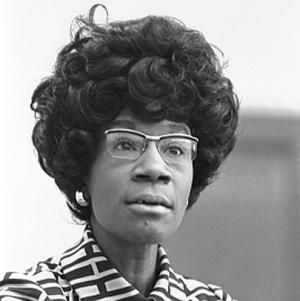In an era where African-American women faced enormous discrimination, Shirley Chisholm pioneered politics and advocated for the rights of minorities. Elected in 1968, she became the first black woman in Congress and the first to run for president under a major political party. “Fighting Shirley” was a crucial champion for those whose voices often went unheard.
Born in 1924, Chisholm was the oldest child of two immigrants, growing up in a diverse household in Brooklyn. At school, she often found success on the debate team, and many professors told her that she would make a fantastic politician. However, she did not consider that plausible because she believed she had a “double handicap” in being a woman of color.
Chisholm worked as a teacher for her first years out of college, but she stayed civically engaged in the League of Women’s Voters, the NAACP, and her local chapter of the Democratic Party. Eventually, she entered politics as the second African-American in the New York State Legislature, and four years later, she won a seat in Congress. Her main initiatives in the House of Representatives were to increase equality, end the Vietnam War, and ease the burden of the poor.
In 1972, when Chisholm ran to become the Democratic nominee for president, she faced extreme discrimination. Blocked from the televised primary debates and working with a restricted budget, she had to campaign harder for her support than the other candidates. Still, she managed to garner 10% of the total votes in the primary.
Although she missed out on the presidential nomination, Chisholm’s political career paved the way for many African-American women after her. Her motto, “Unbossed and Unbought,” perfectly describes her way of thinking. Despite the odds being stacked against her, Shirley Chisholm chose to chase her dreams, to fight for the unheard, and to break the limitations society put on her.

